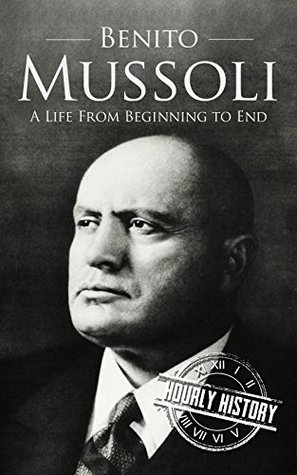More on this book
Kindle Notes & Highlights
Read between
June 23 - June 25, 2023
Ironically enough, it was Mussolini’s own experience as a newspaper editor that made him so suspicious of the free press. He knew the medium well since he had used it early on as his own springboard for success, so he was aware of just how powerful journalism could be. It was for this reason he wanted to have it completely eradicated.
During the course of the conflict, at least 80,000 Libyans had been killed, and the remaining population centers were disrupted as thousands were sent to concentration camps. Several years before Hitler’s plans for Auschwitz were even in place, Mussolini was the first to commit atrocities on a massive scale. But the deaths of the Libyan’s would pale in comparison to what was to come in the ancient African nation of Ethiopia.
The invasion of Ethiopia would begin in 1935 and led up to the ruthless occupation that would last until the British rooted the Italians out in 1941. During that window of brutal repression, it is estimated that a shocking 8% of Ethiopia’s total population had been annihilated. Mussolini’s cavalier attitude towards the deaths of these Ethiopians is even more disturbing.
Of all these early engagements, it would be the Greco-Italian War that would prove to be the most disastrous. Mussolini sent over 140,000 troops across the mountainous border of western Greece where they faced incredible resistance from the Greek military as well as the terrain itself. The Greeks fought so heroically and ferociously that they stopped the Italians right in their tracks, before pushing them all the way back to Italian-occupied Albania.
The Greeks surrendered to Germany on April 20, 1941, and Greece was finally handed over to Mussolini. Nearly 155,000 Italians had lost their lives in the process, and although Mussolini ultimately claimed victory, it was the beginning of a long defeat. Almost four years to the day of this Greek capitulation, Benito Mussolini would be dead.


